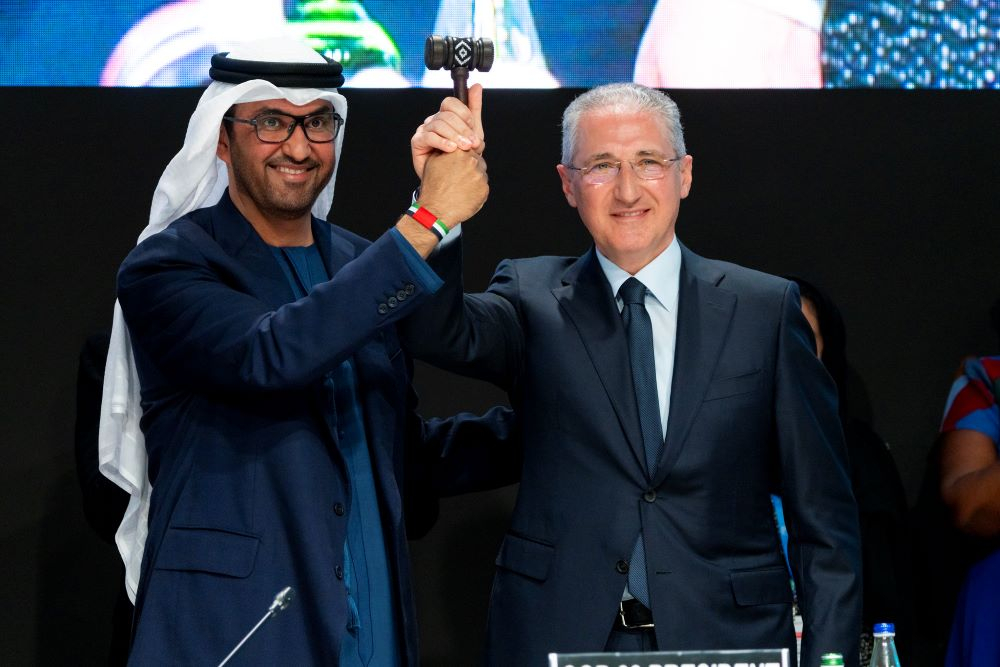This article is also available in Italian / Questo articolo è disponibile anche in italiano
At COP28 in Dubai, all delegations agreed on the phrase “transitioning away”, calling for the first time to the end of the fossil fuel era. Alongside, the so-called Troika, a climate alliance composed of the United Arab Emirates, Azerbaijan and Brazil, was formed. Proposed by Brazil's President Lula, the alliance promised to protect the Paris Agreement and pledged to limit global warming to within 1.5°C.
However, one year on, with the start of COP29 in Baku the plans to expand the oil & gas projects of the three host countries - COP30 will be held in Brazil - do not match the promises made. According to a report prepared by Oil Change International and Observatório do Clima, the COP29 Troika countries are on track to increase their combined oil & gas production by 32% by 2035.
The projects approved by the United Arab Emirates and Brazil in 2024 represent 32% of global projects and could release 2.4 billion tonnes of carbon dioxide into the atmosphere. The science is clear: drilling new areas for oil & gas means failing to meet the objectives of the Paris Agreement. Moreover, according to the environmental monitoring service of the European Space Agency Copernicus, the 1.5ºC threshold will in any case be exceeded as early as the end of 2024, virtually the hottest year on record since 1940.
The United Arab Emirates, Azerbaijan and Brazil also promised to adopt ambitious climate plans (NDCs), but these do not currently mention fossil fuel exports. “The alliance's combined carbon footprint doubles if we count oil & gas exports”, said Shady Khalil, Global Policy Strategist at Oil Change International, recalling the importance of the upcoming NDCs due in February 2025.
Conflicts of interest for COP host countries
Both COP28 in Dubai and COP29 in Azerbaijan are similar in one aspect that could undermine their credibility in the eyes of the public: the conflict of interest. Indeed, the last two climate conferences were organised by petrostates whose economies are based on fossil fuels. Additionally, while last year Sultan al-Jaber, CEO of the Emirates oil company ADNOC, opened COP28 by denying the link between fossil fuels and global warming, on Friday 29 October COP29 CEO Elnur Soltanov was caught by Global Witness activists promoting investment opportunities in Azerbaijan's state oil company Socar, of which he is an advisor.
“This video shows the clear conflict of interest between being CEO of COP and a board member of the host country's national oil company that has massive expansion plans," comments Regine Richter of the environmental organisation Urgewald to Renewable Matter. “After the revelations about Sultan Al Jaber's secret deals last year, there is a serious risk that UN conferences on climate change will instead become discourses on fossil fuels.”
Azerbaijan goes all in on gas
For the regime of president Ilham Aliyev, oil and gas account for about half of the country's GDP and more than 90 per cent of its exports. In 2023 alone, Socar dedicated more than 300 million USD to the exploration of new reserves. According to a study conducted by Banking on Climate Chaos Coalition, between 2021 and 2023 Socar received over $6.8 billion in loans from financial institutions such as JPMorgan Chase and Citigroup. Similarly, the Japanese banks Mitsubishi UFJ Financial and Mizuho Financial supported Azerbaijan's fossil expansion with hundreds of millions of dollars.
A Global Witness report based on data provided by Rystad Energy calculated that Socar and its partners are ready to increase Azerbaijan's annual gas production from the current 37 billion cubic meters to 49 billion cubic meters by 2033. Among the partners there is also the European Union, which aims to import at least 20 billion cubic meters of gas from Baku from 2027 onwards, notwithstanding the serious human rights violations perpetrated by the Aliyev regime.
Brazil's ambiguous role
The contradictions between climate promises and national energy policies are also evident in Brazil, often touted as a potential climate champion from the Global South. Despite Lula's announcements to align Brazil's NDCs with a decarbonisation pathway in line with the Paris Agreement, Brazil aims at becoming the world's fourth largest oil producer.
Indeed, the Brazilian government's latest projections call for national production to peak at 5.3 million barrels by 2030, growing of almost 50 per cent from current levels. Almost all new oil and gas projects approved in 2024 bear the signature of the state oil company Petrobras.
Cover: Sultan Al Jaber, president of COP28, and Mukhtar Babayev, president of COP29 © COP29



